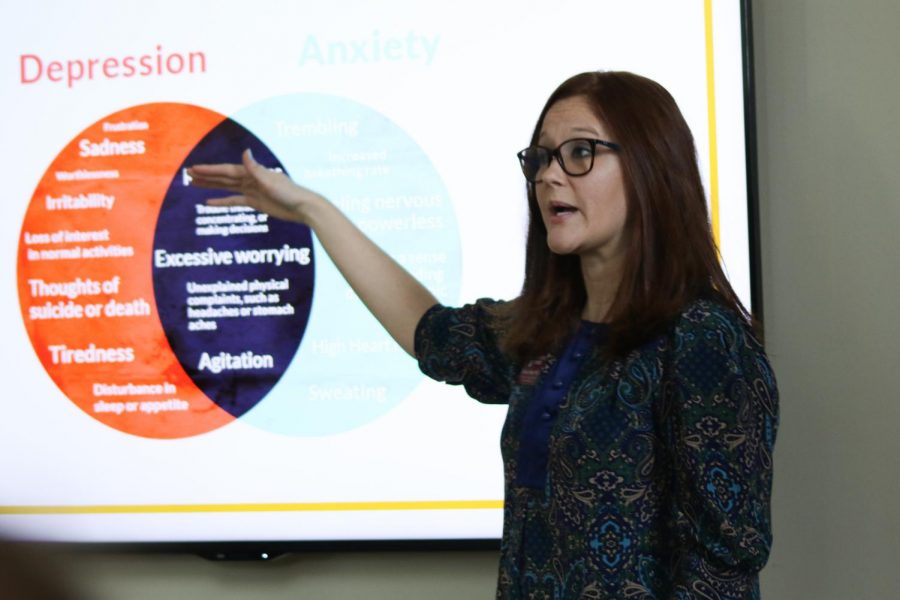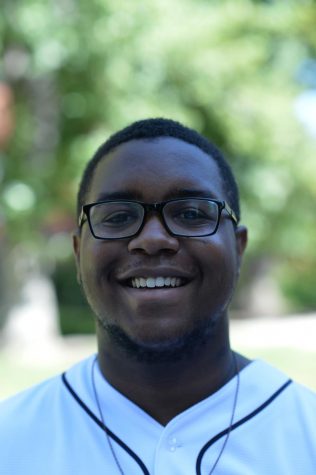Psychology resident offers ways to handle mental health in classrooms
Counseling & Psychological Services psychologist presents a ‘diversity wheel’
JACQUI THOMASSON | THE DAILY EVERGREEN
“If you get a gut feeling that something’s wrong, something is probably wrong,” says Melissa Noble, a Counseling & Psychological Services (CAPS) psychologist.
February 25, 2019
The Alhadeff Future Teachers of Color (AFTOC) held a conference about different topics for future teachers in the WSU College of Education and how they can effectively accommodate students’ needs.
Melissa Noble, a Counseling & Psychological Services (CAPS) psychology resident, held a mental health workshop. Noble discussed how students in classrooms can suffer from neurodevelopmental, depressive and anxiety disorders.
Noble said mental health disorders are not going to look the same for everybody, meaning that different children in the classroom can suffer from different disorders.
Ashley Snyder, a senior social studies teaching major, had the opportunity to attend Noble’s mental health workshop.
Noble presented a ‘diversity wheel,’ which showcases how different types of people could be suffering from any type of mental health disorder. The wheel includes people of different ethnicity, gender, age and background.
“Being able to be that person who can get you help has to be amazing,” Snyder said.
Noble said there is a method teachers can use to be sympathetically there for someone who is struggling with mental health. She calls the method ‘STOP,’ in which ‘S’ stands for showing care and compassion, and ‘T’ stands for tell the student reasons for being concerned. ‘O’ is for orient the student to seek help, and ‘P’ is to provide recommendations.
Noble said self-care and teacher aid are the most helpful resources for a student who is struggling with mental health disorders. Self-help is a start for someone with mental health deficiencies to get on the right track, as well as creating small, short-term goals, getting emotional help, and participating in regular exercise.
“I really want to help with mental disorders because they are on the rise and they are massively ignored,” Snyder said.
Editor’s note: This article was amended to reflect that Melissa Noble psychology resident, not a psychologist.






















